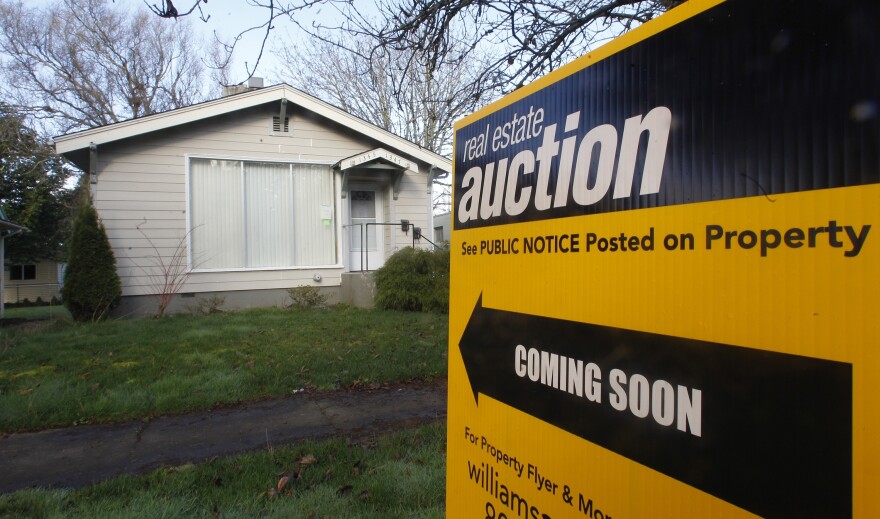RealtyTrac, an online industry group that follows the foreclosure market, says the number of foreclosed properties nationally dropped dramatically in September, down by seven percent from August. And the firm says since September 2011, foreclosures are down 16 percent — that's the lowest total since July 2007.
As part of the foreclosure process, RealtyTrac says it counts everything from default notices to bank repossessions. The firm found significant drops in the number of foreclosures in Arizona, California, Georgia, Michigan and Texas.
Unfortunately, the news is not as rosy as it seems. RealtyTrac Vice President Daren Blomquist warns new regions that haven't struggled as much with foreclosures in the past are now seeing a wave of problems:
"Several states where the foreclosure flow was not so dammed up last year could see a roller-coaster pattern in foreclosure activity going forward because of recent legislation or court rulings that substantively change the rules to properly foreclose. A backlog of delayed foreclosures will likely build up in those states as lenders adjust to the new rules, with many of those delayed foreclosures eventually hitting down the road."
The company sees trouble in states like Florida, Illinois, Ohio, New Jersey and New York. In Ohio, the Columbus Dispatch reports foreclosures rose 1.8 percent in September and, compared to one year ago, property foreclosures are up 9.8 percent.
California is a promising picture of improvement. The state has frequently been at or near the top of the foreclosure list but is seeing a change for the better. Even though California remained one of the hardest hit property markets in September, foreclosure starts there are now 45 percent lower than what they were one year ago.
However, fleshing out the mixed picture, the situation is now much worse in Florida. RealtyTrac finds foreclosure starts jumped there by 24 percent in September, compared to the same time last year. Florida now leads all states in the greatest number of properties in the foreclosure process. That's the first time that's happened since April 2005.
Copyright 2021 NPR. To see more, visit https://www.npr.org.



